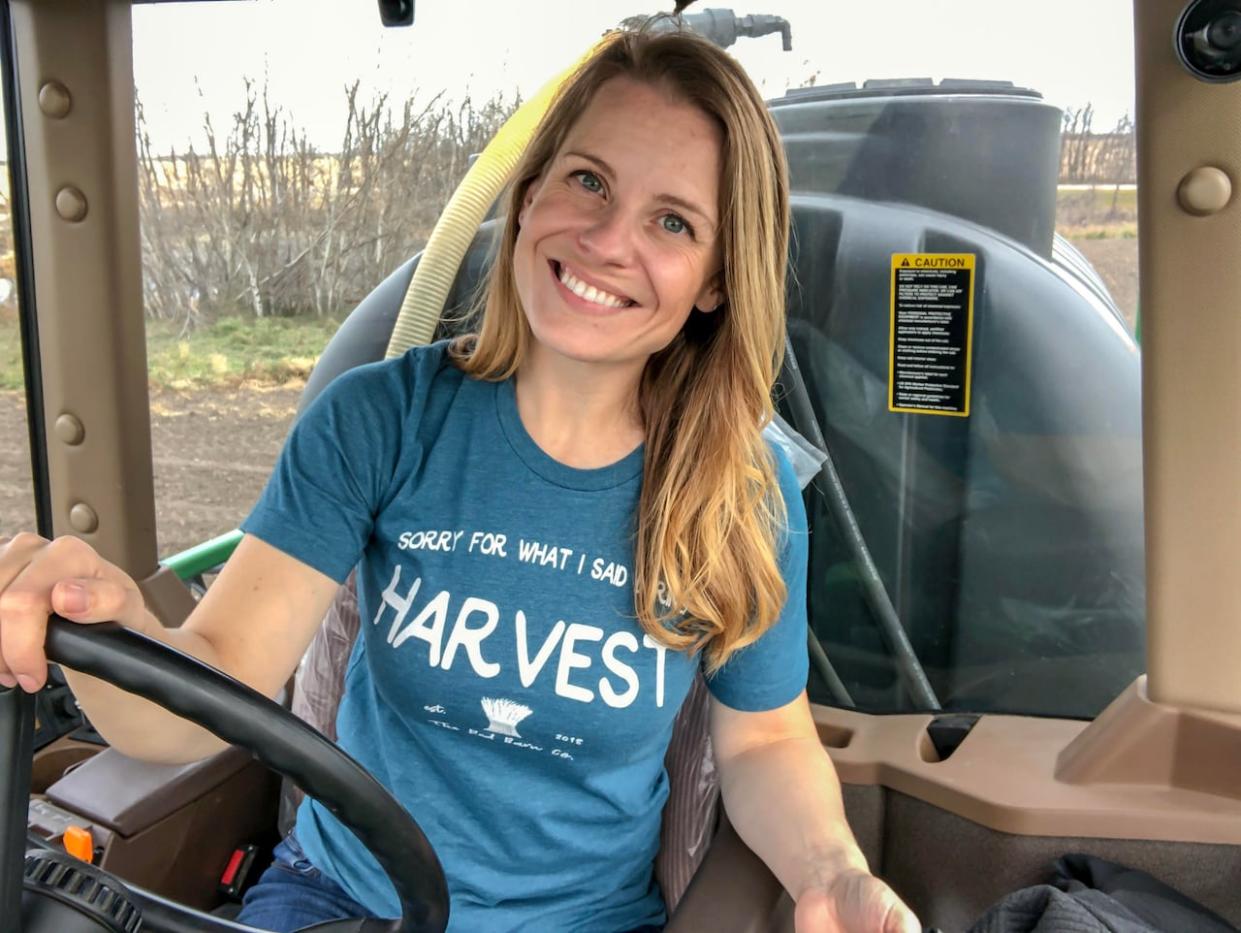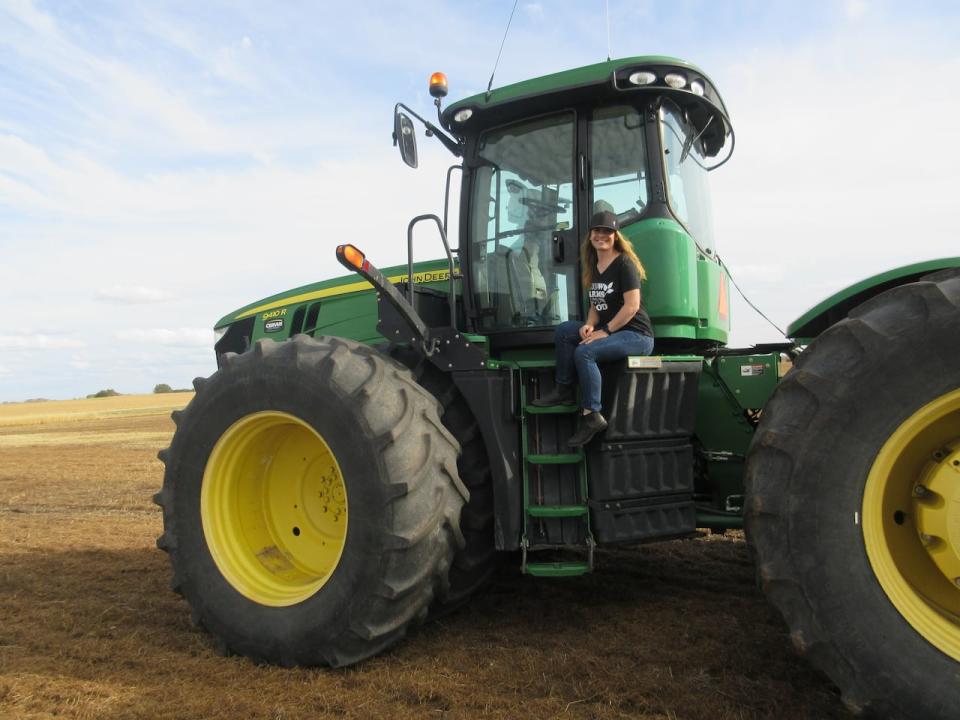Sask. farmer 'breathing a sigh of relief' after snowstorm brings much-needed moisture

A Saskatchewan farmer says she is thrilled with the snowfall from this weekend's severe winter storm.
Lesley Kelly, a grain farmer in Watrous, was concerned about the upcoming crop season due to a lack of moisture in the soil.
Watrous, a town in central Saskatchewan, received 31 centimetres of snow over the weekend, according to Environment and Climate Change Canada (ECCC).
Kelly said the snow reaches her chest on some parts of her farm.
"Just a few days ago behind me this was all brown," Kelly said. "Now with the added moisture, the added snow, I am breathing a sigh of relief as we head into this new crop year."
Kelly said she's experienced extreme drought conditions during recent crop seasons. She is hopeful that the recent snowfall brought enough moisture ahead of spring seeding, which starts in about 60 days, and that there will be more precipitation in the coming months.
She said that her stress level about the upcoming season, on a scale of one to 10, went from nine to four in a matter of 24 hours.

Grain farmer Lesley Kelly, seen here during a previous crop season, says she is feeling less stressed, but is still hopeful for more precipiation. (Supplied by Lesley Kelly)
Snow is going to stick around
With cold weather expected this week, the snow isn't going to melt right away, according to ECCC meteorologist Eric Dykes.
"It's not like it's late April, early May. This snow is going to stay and then slowly melt and be absorbed by the ground," Dykes said.
"To what degree it's going to help with the drought issues, I can't speak to that, but I know it's going to help in some way, shape or form certainly."
Kris Cherwyck, an agrologist and farmer near Norquay in eastern Saskatchewan, liked what he saw out his window this past weekend and during another dump of snow in late February.
"I wouldn't say there was a dire situation like we've seen in some other parts of the province, but we were definitely wishing for the snow and we got it," Cherwyck said on CBC Radio's The Morning Edition.
Cherwyck said the snow that fell is dry and more susceptible to blowing around.
"If it all goes all blows into the ditch, then that doesn't really help you very much in your field," Cherwyck said. "So when you have that standing stubble, it'll catch the snow and then it'll go into the ground instead."
Hoping for rain
Cherwyck said the snowfall is great, but he is still hopeful for more rain during the crop season.
"In our area here in Norquay, we didn't have rain from about the middle of June to close to the middle of July, and if we had just had even that extra inch, it would have gone from a good year to a great year," Cherwyck said.
The Saskatchewan Crop Insurance Corporation (SCIC) announced the details of its 2024 Crop Insurance Program on Tuesday.
SCIC has issued more than $6 billion in insurance claims through its programs over the past three years. The majority of those claims have been weather related, according to a Government of Saskatchewan news release.
It is estimated that the corporation paid out $1.85 billion in insurance claims for last year's season, according to SCIC president Jeff Morrow.

David Marit is Saskatchewan's Agriculture minister. (Craig Edwards/CBC)
Saskatchewan Agriculture Minister David Marit said it is too early in the year to anticipate whether there will be an increase or decrease in crop insurance claims, but that there is some optimism about the crop season because there is more moisture in the ground now than this time last year.
"We obviously need June and July moisture as well, so we'll look forward to that, but it's good to see the snow and obviously this will give us moisture to not only not only put the crop in the ground and start it, but also for the pastures as well fo the grass to get a start," Marit said.
Marit said droughts remain a concern in the province and there are some areas of Saskatchewan that need to see more moisture, including the southwest.

